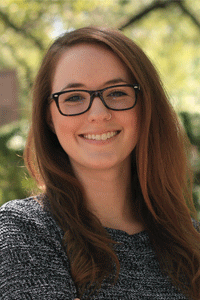Our “On the Market” series is back, featuring UT-Austin graduate students who are on the job market! This series provides sociology graduate students a space to share their research and exchange advice and insights about the job search process.
This installment features Sam Simon, a doctoral candidate and Urban Ethnography Lab fellow:

Tell us about your research. What are you working on?
In my dissertation, I examine the role that hiring and training practices at police departments play in patterns of racist police violence. I spent last year conducting field work at police hiring units and training academies and interviewing police officers, and am now working on publications and writing the dissertation. In other work, I have studied the sexist and racist organizational structures of Hollywood talent agencies, how civilians are taught to conceptualize and use violence at firearms training schools, why women and racial minorities attrite from STEM fields at disproportionate rates, and how gender shapes access to workplace amenities.
How did you prepare for the process of going on the market (preparing materials, selecting the right job openings, sending out applications, etc.)?
I participated in the job market workshop that Ken organized for students the summer before I started applying to jobs, and sought out feedback on my materials from friends in academia and my advisors. I also gave a practice job talk in several settings to gain experience in front of an audience who have expertise in different methodological and substantive areas.
How do you stay organized when it comes to the job market?
I created an Excel spreadsheet to keep track of job postings that I may be a fit for, listed in order by deadline. In the Excel sheet, I list the institution, department, specialty area they are hiring in (i.e. Criminology, Race/Ethnicity, Gender, etc.), link to the job posting on ASA’s website, submission link, job ID (from ASA’s postings), what materials are required, how letters should be submitted (some require your recommender sends them directly via email), the name of the search committee chair if it was listed, and any other notes. I color-coded the Excel sheet to designate the status of my application: green means I applied, white means I did not apply, yellow means I got an interview, and red means I was informed that I would not be going further in the process. I granted access to this Excel sheet to my letter writers so they could reference it, if needed.
To find out about jobs, I primarily used the ASA job bank, but was also subscribed to the ASA job listserv, and checked emails from ASA sections and other sociological organizations (like SSS and ESS) for job listings.
How are you balancing all of your responsibilities this semester?
Good question! I have designated 2 days roughly every 2 weeks to devote to job applications. On those days, I sit at a coffee shop and crank out the applications that are due that month. The rest of the time, I work on my dissertation, publications, or my research assistant responsibilities.
What is it like being on the market at ASA? What are the keys to success?
I found that being on the market at ASA was not all that different than when you are not on the market. The primary difference was that I was more strategic about which panels I attended based on if I wanted to meet someone presenting, I participated in the ASA job fair, I attended a panel about preparing a job talk, and I prioritized attending receptions and other social events in order to network. Some people go all out at ASA and set up a ton of meetings based on which institutions are hiring. That’s one way to do it, but it was not my approach.
How are you practicing self-care?
During graduate school generally, it has been critical that I spend time pursuing non-academic interests and hobbies. I am the creative director of a dance team in Austin, which has been fantastic both creatively and socially, I lift weights almost every day, and I take the weekends completely off (with a few exceptions) to spend time with friends and relax. Taking weekends off has helped both my mental health and my work, actually – my writing on Monday is significantly better because I take time to think about and experience other things, which I then often bring into my work.
What is your biggest piece(s) of advice for those going on the market next year or in the next few years?
The best advice that I have received is to remember that most of this is beyond your control, so not to spend too much time obsessing or worrying. Spend time preparing your materials in advance so you have plenty of time to make edits, sign up for practice job talks even though it’s nerve-wracking, and seek out support from faculty and fellow students.

